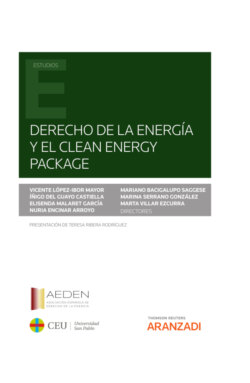Читать книгу Derecho de la energía y el clean energy package - Elisenda Malaret García - Страница 16
На сайте Литреса книга снята с продажи.
IV. THE SECONDARY LAW AFTER THE MAASTRICHT AND THE LISBON TREATIES
ОглавлениеBy applying the provisions of the Maastricht (1992/1993) and Lisbon Treaties (2007/2009) and the decisions of the European Council, the EU legislator has adopted important secondary legislation. This legislation concerns: 1) the functioning of the energy market8, 2) security of supply9, 3) energy efficiency10, 4) renewable energy sources11 and 5) greenhouse gas emission allowance trading12.
More particularly, with regard to the functioning of the energy market, the EU legislator adopted the legal acts in three stages, in 1996/199813, 200314 and 200915. These acts are called the “three packages”. The result of these three packages has been the liberalisation of the market in terms of the production of electricity and the importation of natural gas as well as in terms of the distribution of the two sources of energy to undertakings and households. The latter now have the right to choose their supplier.
On the other hand, the level of energy transport continues to be a natural monopoly. However, the legislation introduces the rule of third-party access to the system in return for payment. This rule is specified in each particular case by each competent national regulator. A new body, the Agency for the Cooperation of Energy Regulators (“ACER”), is responsible for cooperation between the national regulators. This body may also, among other things, take binding decisions. These decisions may be attacked by an act for annulment before the General Court of the EU in Luxembourg.
